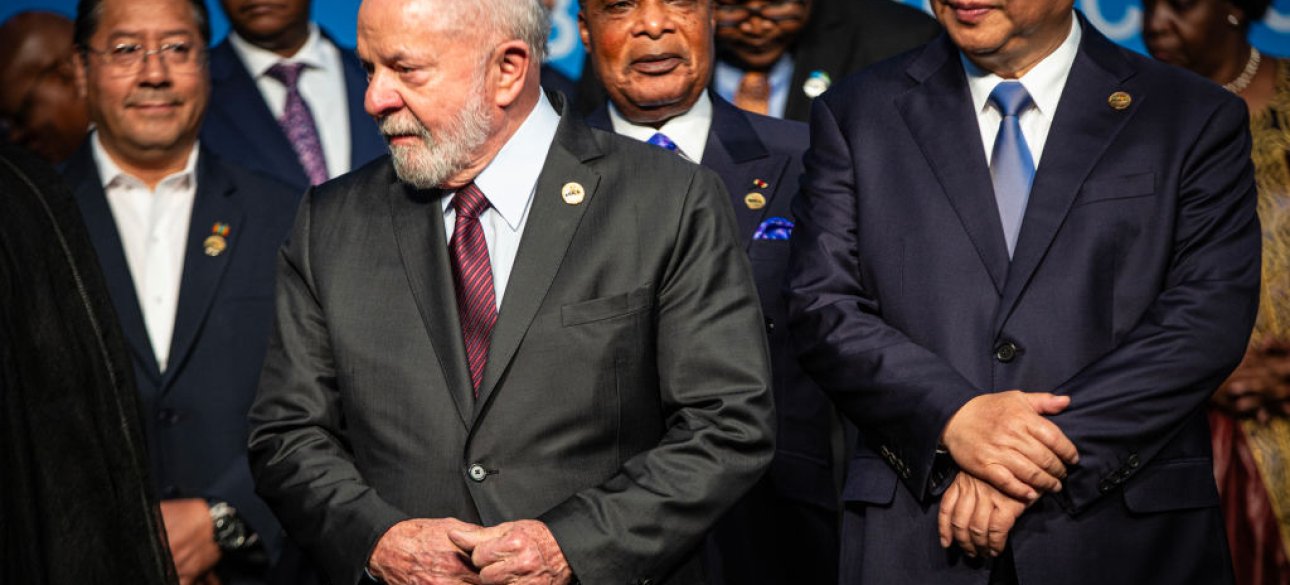
For the Russian Federation it was necessary to demonstrate "support" by this formation and, if possible, to impose its agenda within Brix. Among the key directions: there was something different in reality. Let's go on the points in reverse order. Some of the analysts in Ukraine perceived it as a statement about the inadmissibility of strikes in the Russian Federation. But let's remember how the Russian Federation works before important negotiations.
Namely - the concept of "escalation for the sake of de -escalation" and the so -called flank diplomacy and peripheral crises. Russia gladly creates additional problems in other regions in the event of negotiations to "solve everything in complex", where concessions in the minor directions for themselves exchange for concessions for the key. Africa, Yemen, Hamas, Hezbolla, Iran - ask questions about the time when escalation began. Then read Putin himself and his environment.
Who talk about the risk of war on war, in fact (as well as nuclear weapons) trying to frighten Ukraine's partners (and not only). And here we have a statement rather not too pleasant to Putin than holding his line. For Brix countries, for example, the problem of Yemen is largely more important than war in Ukraine. The threat of destabilization of the Middle East is too. We will add here the lack of mention of "Russian proposals" in the documents.
There is a statement about the need to regulate in accordance with the Charter, goals and principles of the UN. And this, for a minute, and territorial integrity. This is a great trouble. The Kremlin was counting on Belarus, Serbia, Central Asia, Venezuela, possibly African states from the Russian influence zone. All these countries could create a pool of votes, which gives the Russian Federation the opportunity to dictate its agenda.
But even before the summit, Kazakhstan suddenly states that Brix membership is not a key task at this stage. The rest of the countries of the region are also quite cold to the idea (which may seem strange if you take into account the experience of the previous summit). Belarus declares the intention to enter, but is satisfied with the task of obtaining the status of a partner. Why? Answer in the position of China and India.
China is occupied by the transformation of the highway into its own and only its structure, limiting Russia's influence. And to create at this stage the problem in Brix in the form of "Russian Front" does not intend. Therefore, Beijing partners (even those where the Kremlin are significantly influenced) were sharply restrained by appetites. The most highlighted theme. In reality, the parties announced an increase in mutual lending in national currencies.
This is what happens and is a policy of China, India and South Africa (in Africa) to strengthen their currencies and political influence. De facto is announced that there will be more money. What is logical, given the development of the organization. The "sacred cow" of the Kremlin in the form of "a new digital currency" remained the dreams of Putin and political hallucinations of those who sit on Russian allegedly "insides".
Well, the symbolic bill that the Russian president tried to give to the participants of the summit. This does not mean that the idea is not entitled to life. It can be implemented. But only after the policy of strengthening the impact of national currencies of the PRC, India, South Africa. Or the failure is so much that a new mechanism for ensuring mutual calculations will be required. The Kremlin's bumps are not interested in partners at this stage. The same applies to world trade, sanctions.
The Brix states, of course, said the problem, but did not raise rates. Brix is really gradually transformed into an international structure similar in its potential influence to the G-7. But at the same time, the participating countries do not burn the desire to create an "anti-Western block".
The influence of Brix states is increasing, but the organization does not turn into a "political block", as Putin would like, at least because it unites quite different in its political system of the state. Brix is really gradually approaching the moment of transformation into a powerful system of economic interaction, but at the same time does not burn the desire to act as a "political enemy" for the countries of Western civilization.
This is more about the joint promotion of the interests of the participating countries. And finally, the Brix Kazan Forum showed that participating countries do not want to provide Russia with a platform for their geopolitical strengthening. The Russian Federation is part of the organization, and today it is one voice of nine (well or 2 to 7, if the Russian Federation votes in synchronously with Iran).
Changing the balance and strengthening the Kremlin's capabilities with Brix key participants are in no hurry. But to expand the organization in the following stages, when the Russian Federation is no longer able to form a "pool of dependent" during voting, they will probably be. And in 2025, Brix presidency will probably leave Brazil. And it will be a completely different agenda. The author expresses a personal opinion that may not coincide with the editorial position.










All rights reserved IN-Ukraine.info - 2022